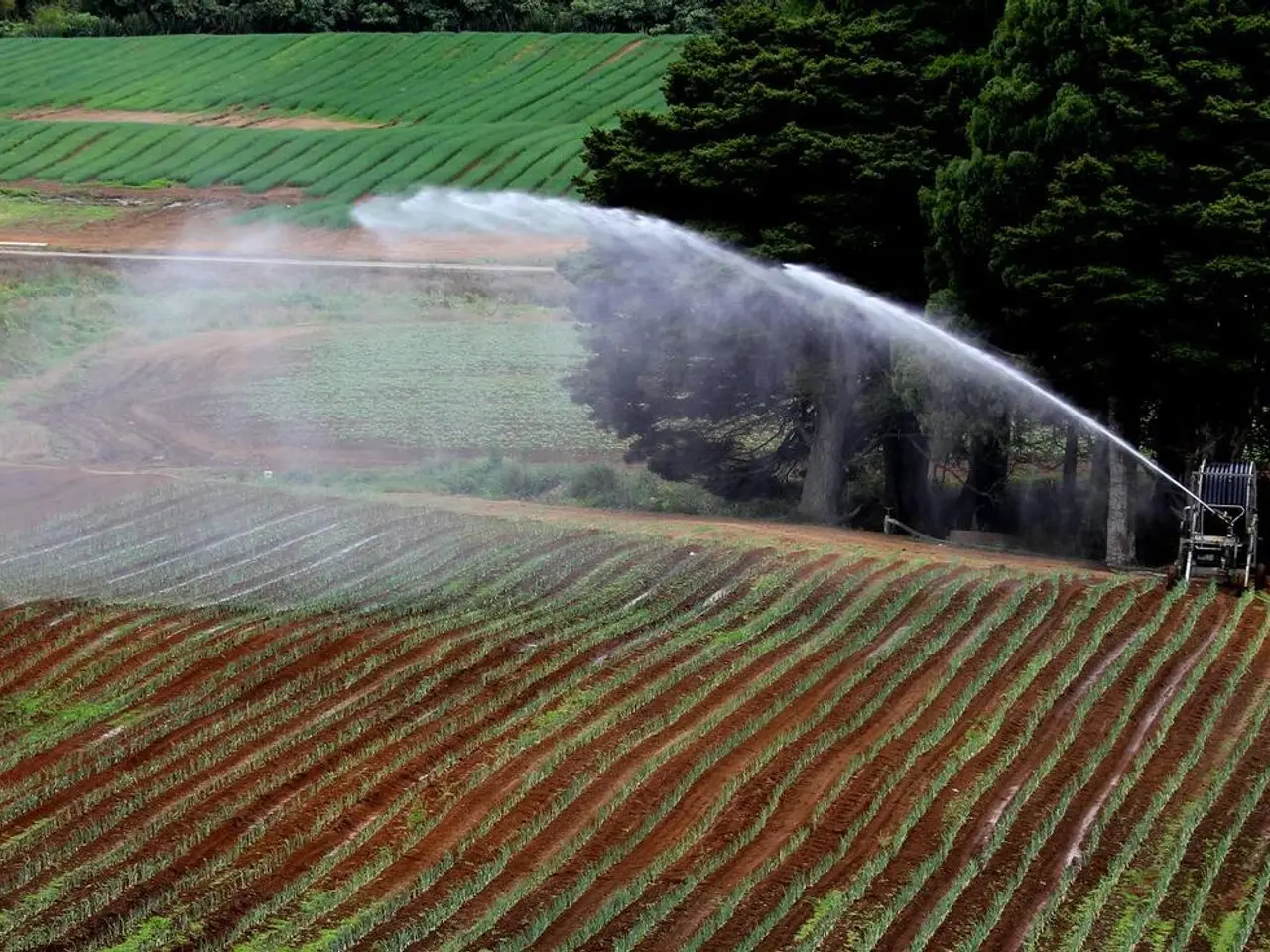Streamlining Agricultural Processes in Tobacco Farming: Prioritizing Quality, Regulatory Compliance, and Financial Efficiency
In the ever-evolving world of agriculture, tobacco farming is undergoing a significant transformation, thanks to the integration of cutting-edge technologies. This modernization aims to future-proof the industry by enhancing quality, sustainability, and regulatory compliance.
The core of this transformation lies in precision agriculture, AI-driven analytics, satellite monitoring, and digital traceability systems. These innovations are revolutionizing crop management, enabling sustainable practices, and increasing yield accuracy while minimizing environmental impact.
Precision Agriculture and AI are playing a pivotal role in this transformation. The use of drones, AI-assisted leaf grading with over 95% accuracy, and machine learning models are optimizing crop management, improving leaf quality, and yield. These practices not only foster sustainability but also reduce excessive use of chemicals and water.
Sustainability Monitoring is another key area where technology is making a difference. Satellite-based environmental impact monitoring and carbon footprinting allow farmers and suppliers to quantify and manage ecological effects, supporting compliance with sustainability certifications like organic and fair-trade tobacco.
Digital traceability solutions are another game-changer, increasing transparency from seed to processing. This satisfies stricter anti-tobacco regulations and export requirements related to fair-trade and quality assurance. A centralized digital dashboard provides real-time farm activity tracking, supplier compliance & risk assessment, and carbon footprint monitoring & sustainability reporting.
Compliance Automation and Data Governance platforms help stakeholders navigate growing complexity in policy and ESG mandates, ensuring timely reporting and reducing operational risks. Resource and Fleet Management technologies are also being employed to reduce costs and environmental emissions while stabilizing supply chains amid volatility.
Connectivity and Advisory Services are empowering farmers with real-time weather updates, market pricing, and farming advisory, enabling them to make more informed decisions that improve crop resilience and profitability.
By embedding these technologies across the value chain, tobacco farming can evolve into a more adaptive, sustainable, and compliant sector that meets both market and regulatory demands globally. Companies like British American Tobacco are leading this charge, deploying AI for yield improvement and environmental impact reduction.
However, tobacco brands face challenges in ensuring consistent quality, lack of data-driven insights on cost & farm productivity, and compliance & audits for sustainable tobacco farming. Investing in traceability solutions is necessary for staying competitive in a rapidly evolving regulatory landscape.
A mobile app for farmers provides step-by-step Package of Practices (PoP) and real-time alerts on best cultivation techniques. The platform connects farm-level data to procurement, warehousing, and processing teams for verification and quality control.
Farm Management Systems (FMS) digitize and automate key farming activities, improving farm visibility, crop health monitoring, weather tracking, irrigation management, procurement, and cost tracking. A digital farmer profiling system ensures a centralized database with detailed information on land ownership, farming practices, and sustainability certifications for each farmer.
Geo-tagged farm records verify sourcing locations and ensure compliance with regulations. Lack of structured cost tracking and resource optimization leads to high input costs and yield losses in tobacco farming. Digitizing farm records and using AI and predictive analytics can help optimize resource use.
Blockchain technology can provide end-to-end traceability for compliance and sustainable sourcing in tobacco farming. The Farm Management Platform for Tobacco Farming offers end-to-end digital traceability, helping tobacco brands track, monitor, and optimize their entire supply chain.
In conclusion, the future of tobacco farming lies in embracing precision agritech, AI, satellite monitoring, digital traceability, and compliance-focused analytics. These technologies are transforming tobacco farming, making it more efficient, sustainable, and compliant with global regulations and sustainable tobacco programs. Brands lacking structured sustainability tracking and end-to-end traceability of tobacco supply chains risk losing access to EU and US markets. Investing in traceability solutions is not just a competitive advantage but a necessity for the future of the tobacco industry.
- Integration of blockchain technology in tobacco farming can offer end-to-end traceability for compliance and sustainable sourcing, which is essential for brands to access EU and US markets.
- Farm Management Systems (FMS) in tobacco farming digitize and automate key farming activities, enhancing farm visibility, crop health monitoring, and sustainability certifications.
- By implementing digital traceability solutions, tobacco farming can satisfy stricter anti-tobacco regulations and export requirements related to fair-trade and quality assurance, while also providing increased transparency from seed to processing.




